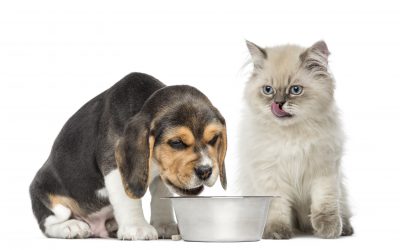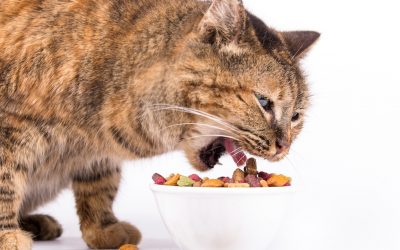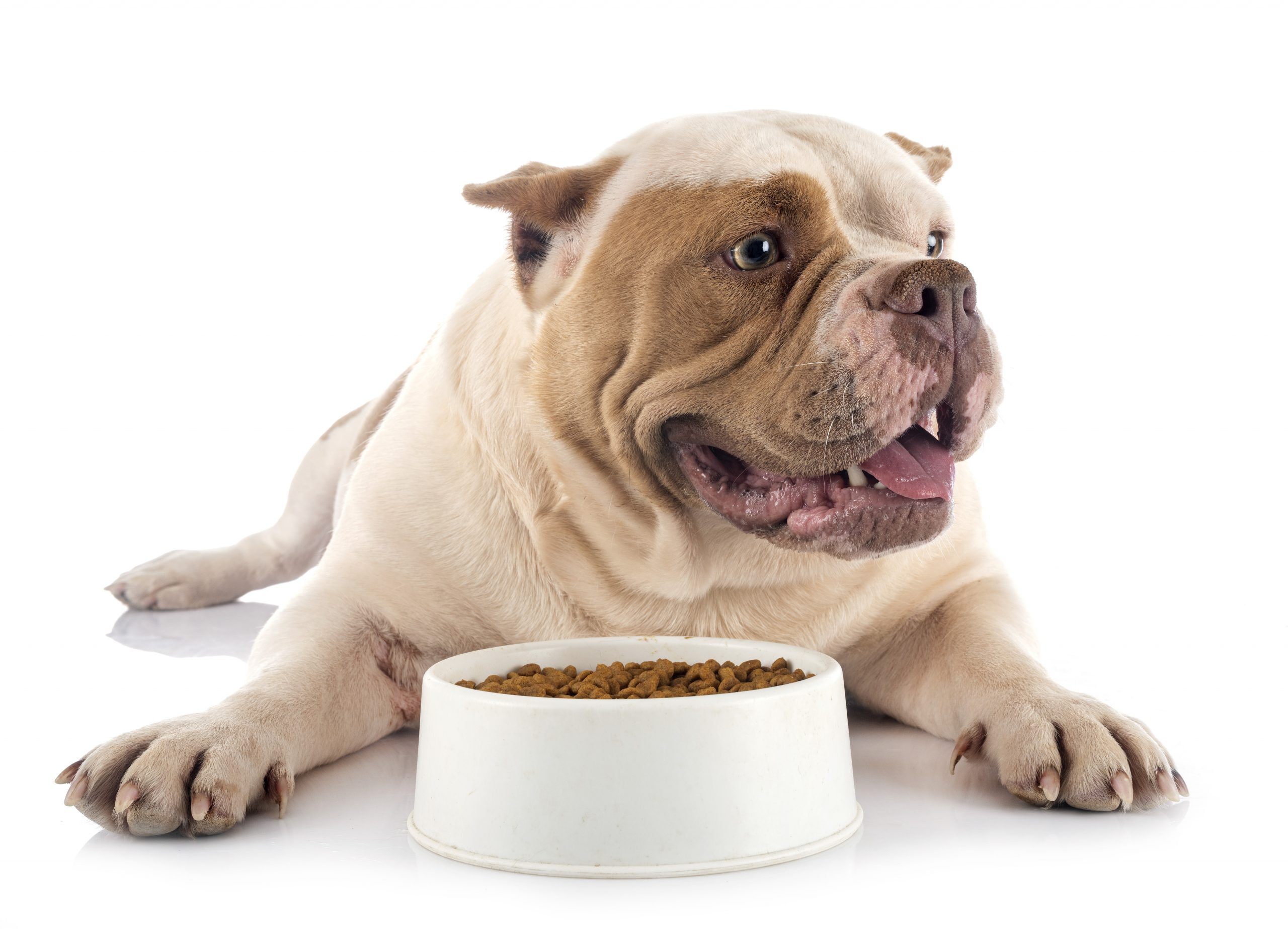
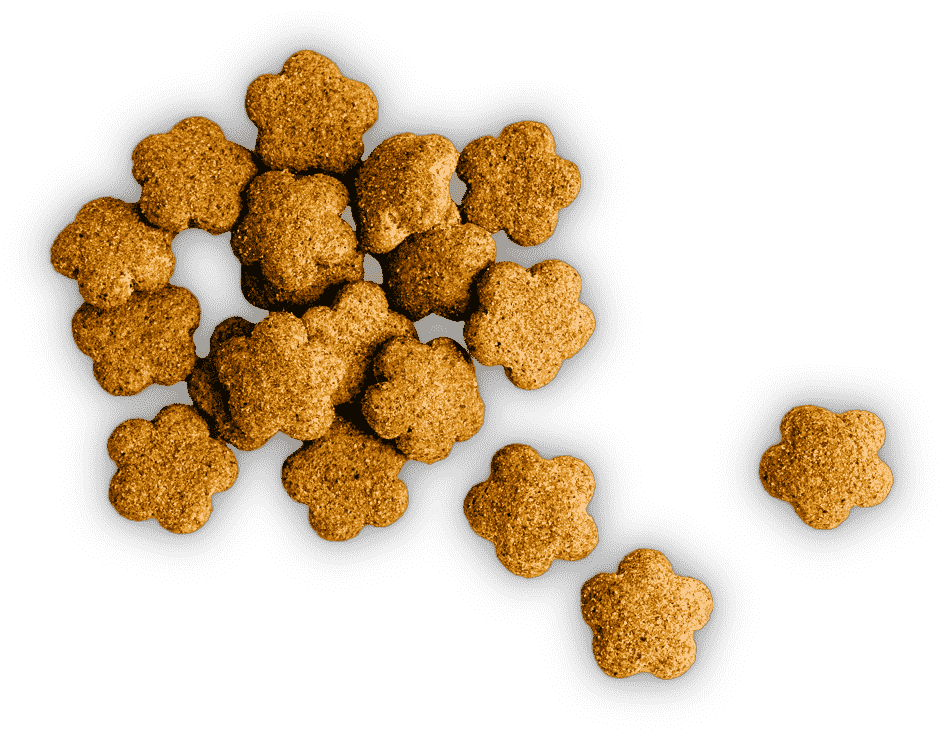
Pet Nutrition
There is so much information pumped into main stream society by commercial pet food companies in order to market the pet food industry that it creates mass confusion amongst pet owners. Yet, the decision you make concerning the food you buy for your pet is central to your pet’s health and well-being. We hope to shed light on some of the more widely asked questions concerning your pet’s nutritional needs, including fiber, protein, fat, and vitamins. Remember to talk with your veterinarian about the best food options for your pet’s age and medical history.
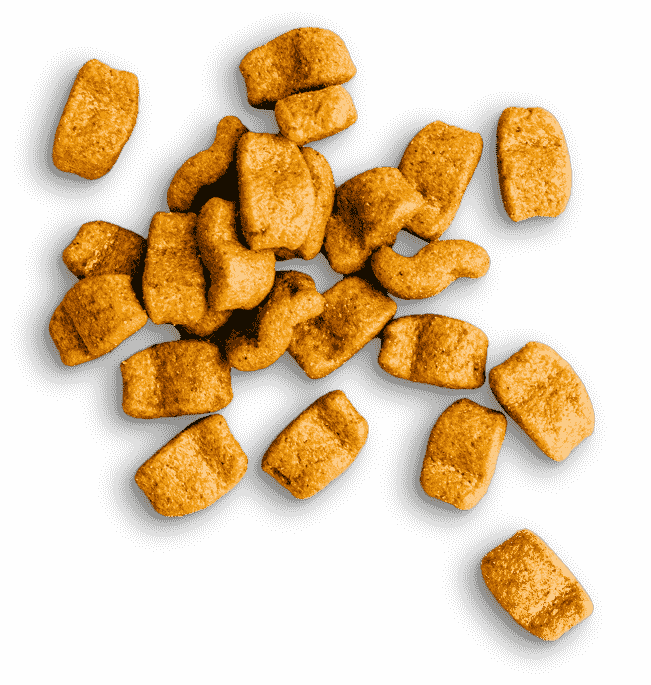
Pet Obesity Is A Growing Trend
Many serious health conditions are linked to obesity.
%
Dogs in the U.S. with Obesity
%
Cats in the U.S. with Obesity
%
Rise in Dogs with Arthritis
%
Rise in Cats with Arthritis

Fat in Pet Foods
Fats are part of a balanced diet and are a source of energy. They even make for a healthier skin and coat. Unfortunately, they also supply the calories and are responsible for serious health problems.
Fiber: a Friend or Foe
Fiber has long been associated with health benefits. It can make us regular and assist with digestion. It has also been shown to benefit gastrointestinal issues, weight loss efforts, and high cholesterol and triglycerides.
Essential Amino Acids
Proteins are made up of 20 amino acids and are the building blocks of cell growth, maintenance, and repair. To understand the role of protein in your pet’s diet, you must understand the role of amino acids.
The Skinny on Dog Treats
It’s counterproductive to feed your pet a healthy diet and then turn around and feed your whining wide-eyed beloved animal treats rich in calories. The same goes for table scraps. Your dog has learned that if he looks at you long enough, while you’re eating, you will give in and share some of your delicious human food. Find the willpower to resist. You would be doing him a disservice if you don’t. Practice the no touch, no talk, and no eye contact rule while you’re eating. Your pet will learn that begging doesn’t get him results and eventually stop. If you want to give your pet a treat to reward good behavior, ask your doctor what treats are recommended for your pet’s unique dietary needs. Do your research. Choose treats that are not only healthy for your pet, but will also keep him wanting more. Avoid foods high in fat and make a list of preferred high, medium, and low value treats.

Food Allergies
Pet food ingredients can and often do produce allergies. Learn to identify the signs in your pet.
Buying Dog Food
There are many choices of dog food. How do you choose the right one and what do you need to look for?
Cat Anorexia
Is anorexia in cats for real? Learn the difference between true anorexia and pseudo-anorexia.
Finicky Eaters
Find out why your pet won’t eat the food you give him and what you can do to get him to eat it.
Vitamins and Minerals
FINDING BALANCE WITH SUPPLEMENTS
Vitamins aren’t naturally synthesized by the body and must be obtained from the foods we eat. The same is true for animals. Since vitamins and organic compounds are essential for normal growth and a balanced nutrition, it has become common practice to give pets supplements. But, is it necessary? Well, according to experts, pets receive the necessary vitamins and minerals from commercially processed foods. Foods labeled ‘complete and balanced’ have been specifically formulated to meet the nutritional needs of your pet. The same can’t be said for homemade diets. A growing number of pet owners have been feeding their pets homemade whole food diets. More likely than not, homemade meals will not have the specific vitamin requirements to maintain their pet’s health. Giving pets supplements will ensure they have a balanced level of vitamins and minerals in their diets. Aging, overweight, and sick pets will also benefit from supplements. Vitamins can help reduce inflammation, aid with memory, improve skin and coat health, and regulate digestion. Talk with your veterinarian to determine if your pet will benefit from adding vitamin and mineral supplements to their diet.
Articles
Finicky Eaters
If your pet has lost his appetite, has lost weight, or has been refusing to eat for more than 24 hours, contact your veterinarian immediately to ensure that nothing serious is going on. Weight loss and lack of appetite can be a sign of illness. If you get the all...
Buying Dog Food
Determining what food to feed your pets is one of the most important decisions you can make concerning your pet’s health. High quality dog food helps maintain appropriate levels of essential nutrients. Adequate nutrition means fewer digestive problems, firmer stools,...
Pet Food Allergies
There are 3 major allergens that affect as much as 50% of all dogs in the U.S. The most common is flea bite allergies with as many as 40% of all dogs developing symptoms. The second most common is atopy with a 15% occurrence rate. Atopic allergens refers to inhaled...


